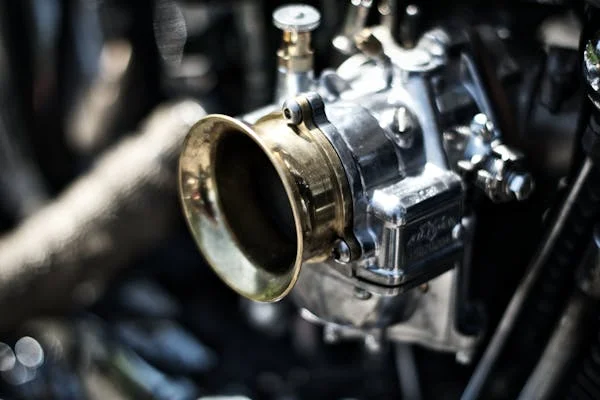Introduction
The Nissan K24 engine, popular for its durability and efficiency, can be further enhanced with a propane carburetor fuel system. This conversion offers a cleaner and more economical alternative to gasoline, improving fuel efficiency, lowering emissions, and even reducing operating costs. In this comprehensive guide, we’ll explore the benefits, installation process, components, and maintenance of a propane carburetor system in the Nissan K24 engine.
Understanding the Nissan K24 Engine and Propane Carburetor
What Is the Nissan K24 Engine?
The Nissan K24 engine is a robust 4-cylinder powerplant known for its smooth performance and reliability. This engine is part of Nissan’s family of internal combustion engines, found in various models like sedans, trucks, and other vehicles. Originally designed to run on gasoline, it can also be adapted to run on propane.
Propane is a clean-burning fuel that is more efficient than gasoline in certain applications. It offers several benefits, including cleaner emissions, better fuel economy, and less maintenance. For vehicle owners seeking to make their engines more eco-friendly and cost-effective, converting to a propane system is an excellent option.
How Does a Propane Carburetor Work?
A propane carburetor is an essential component in the conversion process, responsible for regulating the fuel-to-air ratio that enters the engine for combustion. The carburetor mixes propane gas with air and supplies the mixture to the engine’s intake manifold. Here are the primary components of a propane carburetor:
- Throttle Body: Controls airflow into the engine, dictating how much fuel and air are mixed.
- Venturi: Creates a vacuum that helps draw the propane and air into the engine.
- Idle Jet: Provides the correct amount of propane during idle or low-speed operation.
- Main Jet: Supplies propane during higher-speed driving conditions.
- Float Chamber: Maintains a constant level of propane inside the carburetor for a steady flow.
These components work together to ensure the engine performs efficiently, producing the power and fuel economy that the Nissan K24 engine is known for. The key advantage of using propane is its ability to burn cleaner, producing fewer pollutants and carbon buildup.
Benefits of Using Propane Fuel in the Nissan K24 Engine
Switching from gasoline to propane for your Nissan K24 engine brings several noteworthy advantages. Let’s break down some of the most prominent benefits:
1. Cleaner Combustion
Propane burns significantly cleaner than gasoline. This means fewer emissions are produced, including carbon dioxide, nitrogen oxides, and hydrocarbons. A cleaner burn also results in less carbon buildup on engine components such as the valves and pistons. This leads to smoother engine operation, better performance, and fewer maintenance requirements over time.
2. Reduced Carbon Emissions
Since propane has a higher octane rating than gasoline, it burns more efficiently and with less soot. This translates into a reduction in harmful carbon emissions. If you’re concerned about the environmental impact of your vehicle, converting to propane is a great way to reduce your carbon footprint.
3. Cost-Effective Fuel
Propane is often less expensive than gasoline, making it a more economical fuel source for your vehicle. With fluctuating gasoline prices, propane can provide stable fuel costs over the long term. This price stability helps you save money, particularly for high-mileage drivers.
4. Enhanced Engine Life
A propane-powered engine experiences less wear and tear due to cleaner combustion. Since propane does not contain impurities like gasoline, there is less risk of carbon deposits and other residues building up in the engine. This can extend the life of components like the spark plugs, fuel injectors, and valves, reducing the frequency of expensive repairs.
5. Better Fuel Efficiency
Propane is a more energy-dense fuel than gasoline, which can result in better fuel efficiency. When properly tuned, the propane carburetor ensures an optimal air-fuel mixture, maximizing the efficiency of the engine. The engine burns propane more completely, which means less fuel is wasted.
6. Reduced Maintenance Costs
Since propane produces fewer carbon deposits and residues, engine components tend to last longer. Additionally, the fuel system and carburetor are less prone to clogging, reducing the need for frequent repairs. This lowers maintenance costs, providing savings over time.
7. Increased Engine Power
Propane has a higher octane rating than gasoline, which means it can handle higher compression without knocking. This results in smoother acceleration, improved throttle response, and more consistent power delivery, especially in higher-performance applications.
Converting the Nissan K24 Engine to Propane
Components Needed for the Conversion
Converting your Nissan K24 engine to a propane system involves installing several key components:
- Propane Carburetor: The most critical component of the conversion, which mixes propane and air.
- Fuel Lines and Tank: Propane needs to be stored in a secure tank, and new fuel lines must be installed to deliver the propane to the carburetor.
- Fuel Regulator: This component ensures that the propane is delivered at the correct pressure to the carburetor.
- Electronic Control Unit (ECU) Upgrade: Depending on the vehicle’s model, the ECU may need to be upgraded to accommodate the new fuel system.
- Air Filter: A clean air filter is essential for maintaining the engine’s efficiency, particularly when switching fuels.
- Throttle Body: This component controls how much propane and air enters the engine.
The Conversion Process: Step-by-Step Guide
- Safety First: Before you begin, ensure that all propane-related systems are turned off and there are no propane leaks in the tank or lines. Always wear appropriate safety gear when working with fuel systems.
- Remove the Gasoline Carburetor: Start by removing the stock gasoline carburetor. Disconnect any fuel lines, wiring, and sensors that are part of the existing setup.
- Install the Propane Carburetor: Position the propane carburetor where the original carburetor was located. Secure it in place, making sure all mounting points are aligned.
- Connect the Fuel Lines: Install the propane fuel lines, ensuring they are securely attached and free from leaks. Be cautious when working with propane, as leaks can be dangerous.
- Set Up the Propane Tank: Install a propane tank in the vehicle’s trunk or another secure location. Make sure the tank is properly connected to the fuel lines and is ready to supply propane to the engine.
- Install the Fuel Regulator: The fuel regulator will ensure that propane is delivered at the correct pressure to the carburetor. Mount it securely and ensure proper connections.
- ECU Upgrade: If necessary, update the vehicle’s ECU to account for the new fuel type and optimize the air-fuel ratio. This may require professional help or a custom ECU tuning solution.
- Test the System: After the installation, start the engine and check for leaks in the fuel system. Use a leak detection solution to confirm the integrity of the system. Adjust the carburetor settings if necessary for optimal performance.
- Tuning: Tune the carburetor to the appropriate air-fuel mixture. This will ensure that the engine runs efficiently and produces the correct amount of power.
Propane Tank Placement and Storage
When installing the propane system, you must decide where to place the propane tank. Propane tanks are available in a variety of sizes, and the tank’s location will depend on the vehicle’s design and the amount of space available. Common tank locations include the trunk or the underside of the vehicle. It’s essential to follow local safety guidelines and regulations when installing the tank.
Propane Carburetor Maintenance
Importance of Regular Maintenance
Regular maintenance of the propane carburetor ensures that your Nissan K24 engine runs smoothly. Like any fuel system, propane carburetors require periodic inspection and servicing to maintain their performance. Here are some maintenance tips to follow:
1. Clean the Carburetor
Dirt and debris can build up in the carburetor over time, affecting its performance. Regularly clean the carburetor and replace any filters to ensure that the air-fuel mixture remains optimal.
2. Inspect Fuel Lines
Check the fuel lines for leaks or signs of wear. Propane lines are especially sensitive to damage, so it’s crucial to replace any frayed or damaged sections promptly.
3. Check the Air Filter
A clean air filter helps ensure that the engine receives the proper amount of air. Replace the air filter as needed to maintain airflow and prevent clogging.
4. Tune the Carburetor
Over time, the carburetor may need to be re-tuned to maintain the correct air-fuel ratio. This is especially important if you notice a decrease in engine performance.
5. Winterize the System
If you live in a colder climate, ensure that your propane system is properly winterized. Propane can be difficult to ignite in extremely cold temperatures, so take necessary precautions to prevent issues during the winter months.
6. Inspect for Leaks
Always check for leaks, especially after long trips. Use a leak detection solution to identify potential problems with the propane system.
Conclusion
Switching to a propane carburetor system for your Nissan K24 engine offers several benefits, including cleaner emissions, improved fuel efficiency, and reduced maintenance costs. By following the proper conversion steps and conducting regular maintenance, you can significantly enhance the performance and lifespan of your engine. Propane fuel is not only an environmentally friendly option, but it also offers substantial savings in fuel costs and maintenance.
With the right knowledge, tools, and components, converting your Nissan K24 engine to propane can be a rewarding investment that pays off in the long run. Whether you’re looking to save money or reduce your carbon footprint, a propane carburetor system is a valuable upgrade that boosts your vehicle’s overall efficiency and performance.
FAQs
What is the difference between propane and gasoline?
Propane burns cleaner and produces fewer emissions compared to gasoline. It also has a higher octane rating, which results in better performance.
2. Is the conversion process difficult?
The conversion process requires some mechanical knowledge, but it’s not overly complex. A professional mechanic can help with the installation if needed.
How long does a propane tank last?
The longevity of a propane tank depends on its size and how frequently you use the vehicle. On average, a full tank can last for 300 to 400 miles.
Can I use propane in any vehicle?
Not all vehicles are compatible with propane. You’ll need to check with a professional to see if your vehicle can be converted.
How much can I save by using propane?
Propane is often cheaper than gasoline, which can lead to significant savings over time. Additionally, propane produces fewer carbon emissions, making it an environmentally friendly choice.
Do I need to tune the carburetor after conversion?
Yes, tuning the carburetor after conversion is essential to ensure the air-fuel ratio is correct, which improves engine performance and fuel efficiency.





